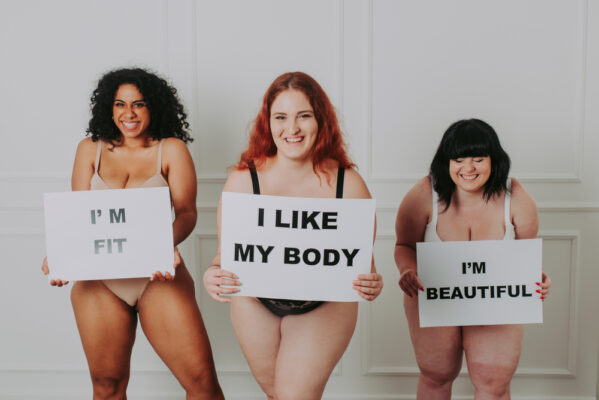What is Self-Image and How is it Influenced?
Someone once said that the happiest moods are those when there is really no particular reason for which to be happy. The happy mood is just the result of feeling good, enjoying the present, and having a positive view of life. Think about the following questions. Are you usually in a good mood? Do you rarely have occasions in which you appear to be angry with the world?
When these times do occur, do they last only for a short period? Are you able to bounce back from disappointments, disagreements with others, or major setbacks, with renewed enthusiasm and a sense of direction? If you honestly were able to answer “yes” to all of these, you are very fortunate. May you continue to enjoy life. But if you found yourself having to say “no” perhaps you need to examine your self-image and your ability to avoid depression.
How to Improve Self-Image?
Self-image is defined as what you think about yourself, the mental picture you have of yourself. It is what you believe your inner and outer self to be. If you like yourself, you have a positive self-image. If you dislike yourself, you have a negative self-image. Self-esteem is sometimes defined in the same way.
The self-image is a human attribute that must be developed. It does not exist at birth; it is not given to you, and the development of it is a continuous process throughout life. It is determined by what you expect of yourself, what you believe others expect of you, and the ratio of successful experiences to failing experiences.
Your self-image and your habits are directly related, and 95% of your behaviour, feelings and responses are habitual. You will feel, act, and perform in accordance with what you believe about yourself. Your self-image is the key to your personality.
Your self-image is influenced by many things, including your confidence and abilities, body image, needs, values, and resources, as well as your feelings of acceptance or rejection by others, and the degree of fulfilment you find in your life and work.
Unfortunately, many people have inaccurate pictures of themselves. They unknowingly embrace some symbolic role based on their own ideas. Are you one of these people? The following pages should help you break free of this problem, working toward a positive, accurate self-image an important component of health.

Achievement and Self-Image
There is positive correlation between the successful performance of physical skills and the improvement of a child’s self-image. In addition, children with a positive self-image, conditioned and fortified by performances they believe to be successful, appear far more likely to expect success in their social and academic endeavours than do children with a negative self-image. On the other hand, the “failure syndrome’’ (unsuccessful performance of physical skills) experienced on playground will be generalized to the classroom.
Studies with college students indicate that achieving students rate themselves higher in ability than do underachieving students. The achieving students also show smaller discrepancies between their perceived and actual levels of college ability. Achieving students know themselves better than do underachieving students.
Successful experiences strengthen your self-image. They give you an enhanced sense of self-worth, effectiveness and opportunity. Successful individuals have a positive self-image.
Development of a Positive Self-Image.
The development of your self-image is a continuous process throughout your life. You are capable of improving a weak self-image. The most important factor in developing a positive self-image is that you must exhibit a desire to change your image. You must be willing to risk your image, to choose freely between alternatives in any given experience or encounter.
You must be willing to “experience” you can’t change your image through intellect alone. The belief that you have more capabilities than you ever use is also essential. And you must communicate with and listen to yourself; you must attempt to motivate yourself into positive action.
Guidelines for the Development of a Positive Action
- Keep your self-talk in the affirmative. Your manner of responding to any devaluation or lack of success is very important. Don’t be too critical of yourself for any failure that you may encounter. Even though you should attempt to succeed in all your endeavours, you must recognize that 100% success is unlikely. Learn from your unsuccessful experiences, then forget them and concentrate on the positive.
- Accept responsibility for your incorrect decisions, but also accept praise. When others compliment you, say, “Thank you!’ Believe that you have earned their praise and recognition. Don’t pass off their comments with responses like, “I was lucky” or “It was nothing!’
- Dress and look your best. Clothes don’t necessarily create a positive self-image, but if you believe you look well dressed, it will give you additional confidence.
- Enjoy volunteering your name when meeting new people. Pronounce it in a confident way. You may have to force yourself to do this, but after a few successful tries, you will find it progressively easier.
- Develop the habit of sitting up front at meetings instead of looking for a seat in the back. Sitting at the front will make it easier to participate in the meeting. Publicly affirming your beliefs will help your self-image.
- Walking slowly with slumped shoulders conveys the impression of someone with a poor self-image, so walk erect and at a moderately fast pace. After a period of time you will feel comfortable walking in this manner.
- Set your own life’s goals. Only you should decide what commitments to make with your life. Plan your goals in a positive way and eliminate phrases like, “I have to!’ or “I can’t!’
- Seek to understand, accept, and enjoy yourself. If it is possible to change or modify the things that you don’t like about yourself, make the commitment to do so. However, accept what cannot be changed and have a positive attitude about it.
- Keep your self-development an on-going process. Seek to discover your very best possible self, to become all you are capable of becoming. Self-evaluation and self-reinforcement can help to improve your self-image.


